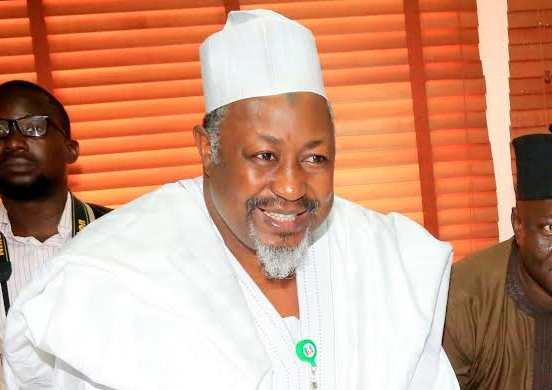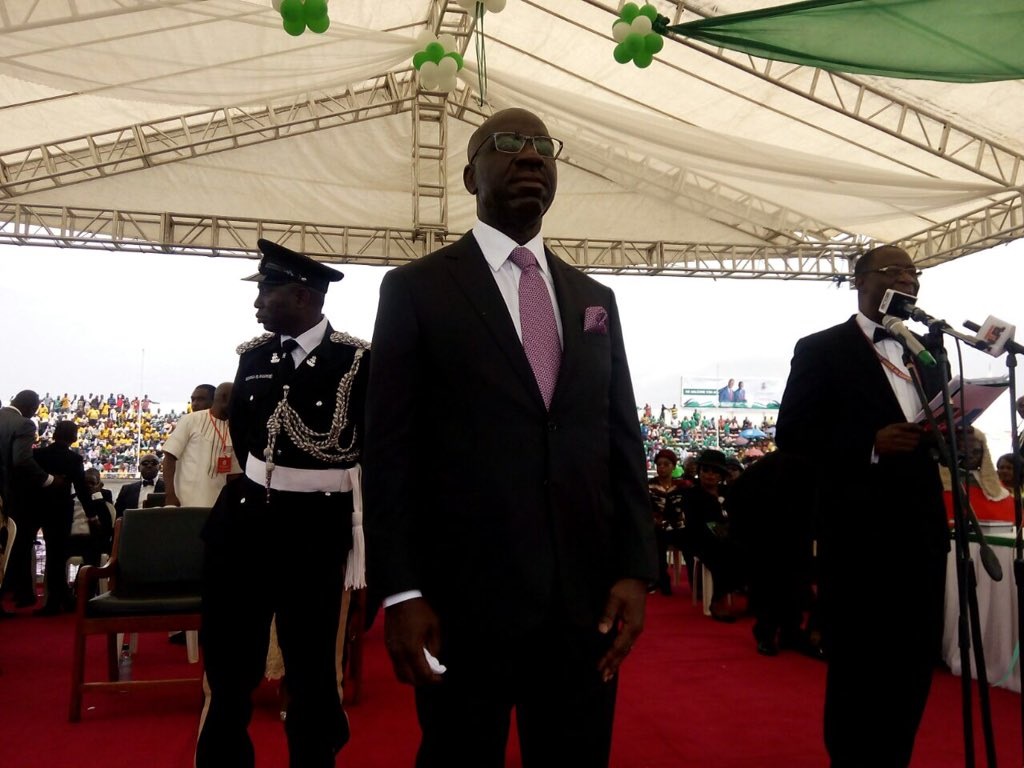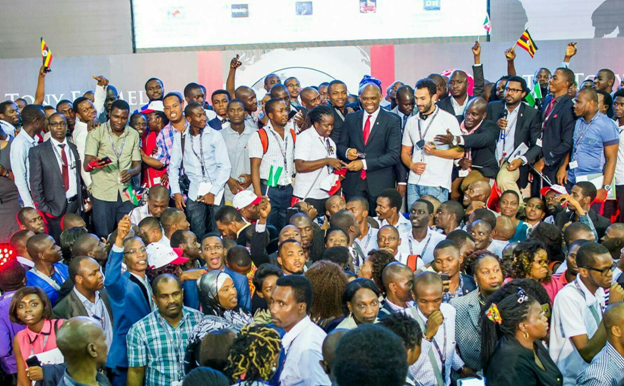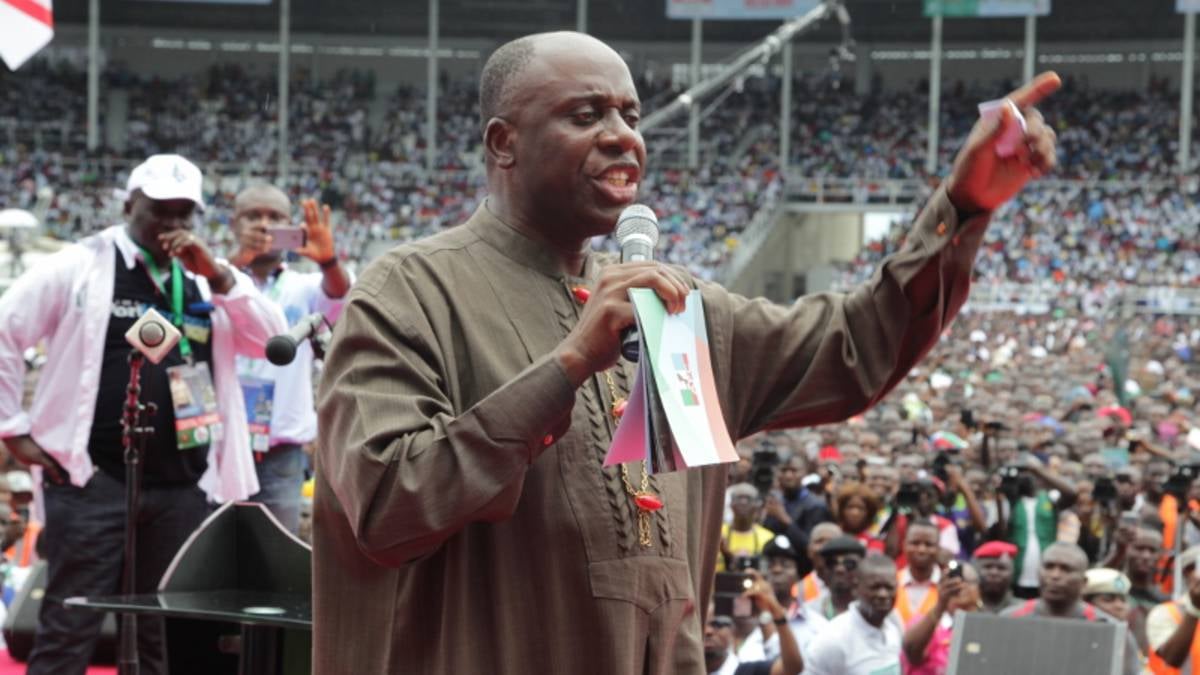Jigawa state governor Muhammad Badaru Abubakar recently spoke with journalists in his office on his plans for agriculture and the CBN intervention scheme, the Anchor Borrowers’ Programme.
What driving Jigawa state in this rice production programme?
Since we assumed office, we had a clear understanding of the dwindling resources of this country bordering on the over-reliance on oil. Also, we took into cognizance that oil is an exhaustible commodity. So, we decided to look inwards to see how best we can create jobs, how best we can create wealth for our people.
And we want to have a competitive advantage of doing it successfully because we have arable land, we have enough water resources, as well as human resources to embark on serious agriculture. So, this is the drive and added to this is our president’s call to the nation to go back to farm.
Advertisement
President Buhari means very well for the nation and for us to attain good economic sustainability, we have to embark on serious sustainable agriculture and I believe this the drive for us to push our people back to the farm. And to do that, we started by trying to enhance re-productivity. We do not want our farmers to borrow and not repay. So, we started the cluster programme, where the state government clusters farmers into groups and gives them all the support they need, ranging from seeds to fertilizer and what have you.
Also, we will closely monitor them through our extension service workers, who are attached to each cluster, so as to not only increase productivity but increase yield in order to reduce the cost of production. And thank God today we have done that and can say our farmers have achieved a significant result and improvement in their yield. That means I can ask them to borrow because I know they the capability to repay. All those who participated in our Anchor Borrowers Programme would be handed over to the central bank and through that continue their farming process, while we take some other clusters and train some farmers and bring them out to the level of good yield and good productivity.
At the close of the day, we would hand them over to the central bank to continue to finance them. It is worthy for you to see and understand clearly that in Jigawa state we anticipate 100 per cent recovery of all the money we loaned to the farmers in clusters because the seeds and fertilizer we give them are all at a subsidised price but as loan.
Advertisement
Today, I can say that most of the farmers are paying back 100 per cent and are praying for us to intervene because they have seen the advantage on the yield and profitability. I believe as you are touring the state, you will interview some of those farmers who participated in the cluster and they will be able to confirm to you what I have said.
How would you assess the role that the CBN has so far played?
Indeed, they have done very well. For instance in Kebbi state, you can see the progress. As a result of Anchor Borrowers’ Programme. The farmers have produced so wonderfully well and I learnt also in Kebbi, there is some improvement in the yield. Kebbi has set the example on how the Anchor-Borrower scheme supports the farmers and have laid the way for food security and sustainability.
One major problem that is affecting farmers in this state is the typha grass. It has been affecting farmers for many years. Successive governments have made efforts to address the menace but to no avail. What efforts are you making to address to burden?
Advertisement
We have massively embarked on weeding typha grass out of our waterways. We have a two-pronged approach: one is the sowing weeding machine, which consistently weeds the grass. We can create cooperatives along the river banks, as well as support farmers with all necessary implements to weed off typha grass from the water.
Also, we have supplied them with canoes and food during the weekend, so that they will all come out and support each other as a community development project. It has been working satisfactorily. But recently, we have been discussing and analysing, at the end of which we confirmed that typha grass can be used to produce some briskets for energy. With that I believe it will address some of the challenges, as we can find market for the briskets to generate energy. It would be good business, as people will cut on their own and sell to the company that coverts it to briskets for energy. That is the best option we are taking for now. In addition to that, the World Bank is working on a project of silting the whole river banks in Kano. That project will substantially support us, as it is a good beginning. Also, we are making efforts to produce our own fertilizer, instead of buying blended fertilizer. We will do groundnut fertilizer for precision and will not widely publicise the effort. The more we embark on precision farming, the less nutrients for the typha grass, thereby paving the way for a more effective control.
What would happen to some farmers who are not involved in the clusters. Do you have any plan for them?
What I earlier said is that we did clusters for 14,350 hectares and we believe that those who participated in that cluster are either rich enough now because of the yield they garnered, so as to be able to work without any support from the government. We hand to over to Anchor Borrower Scheme organised by the Central Bank and the apex bank is ready to give Jigawa state the desired support. Then we move to one cluster to another until all farmers benefit.
Advertisement
Add a comment






